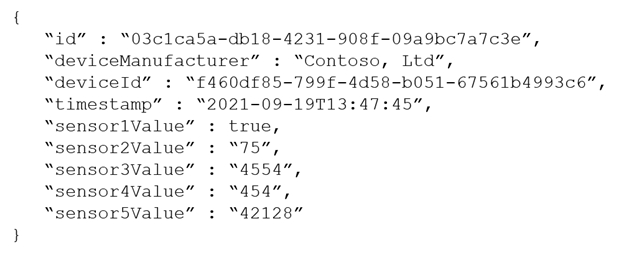

You are designing an Azure Cosmos DB Core (SQL) API solution to store data from IoT devices. Writes from the devices will be occur every second.
The following is a sample of the data.
You need to select a partition key that meets the following requirements for writes:
✑ Minimizes the partition skew
✑ Avoids capacity limits
✑ Avoids hot partitions
What should you do?
muks1003
Highly Voted 2 years, 6 months agopraticewizards
Most Recent 2 days, 7 hours agobiglebowski88
6 months ago[Removed]
9 months, 2 weeks agoGall
2 years, 3 months agoognamala
2 years, 4 months agochukismit
2 years, 5 months agojfarrell
2 years, 6 months agolakime
2 years, 7 months agolakime
2 years, 7 months agoognamala
2 years, 4 months agokdsingh
2 years, 7 months ago